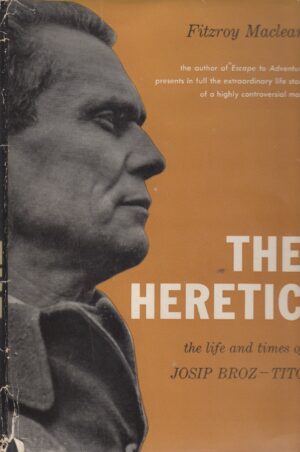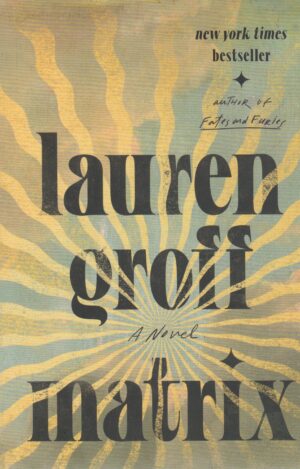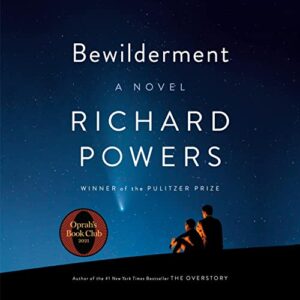
I’m at it again. After spending two decades exploring Finnish, Finnish American, and Finnish Canadian culture; and after writing three historical novels from that experience and research (Suomalaiset, Sukulaiset, and Kotmaa); I’m returning to my maternal grandfather’s roots in hilly, southern Slovenia. My first novel, The Legacy was part historical novel set in WW II and part present-day murder mystery/thriller. I’m following that pattern in my present manuscript (working title, Slovenec: The Slovenian) and crafting a very rough draft of a fictional story while researching the Slovenian Partisans, the Croatian Ustashi, the Serbian Chetneks, and the Holocaust as it happened in the former Yugoslavia. That’s the projected first half of the book. The second half will take the characters (those that survive!) from the war to present day.
Anyway.
The Heretic is a fine biography of Josip Broz’s (Tito’s) life from birth through the book’s release (1957). This extensive volume takes the reader through the war hero’s formative years as a young Communist, to his break with the Soviet Union (after WW II), and ends analyzing the upset caused by Poland’s and Hungary’s challenges to U.S.S.R. Marxist-Leninist primacy during the late 50’s. Maclean, who ended his career in the British Army as a brigadier general (and also served in Parliment) parachuted into Yugoslavia during the war to meet and work with Tito and the Partisans. Much of his writing about the Field Marshall of Yugoslavia comes directly from Tito’s mouth through the leader’s personal stories and the interactions between the two men. In addition, the geopolitical aspects of Yugoslavian story are well-researched and based upon Maclean’s exhaustive review of Balkan history. The book is well-written, gives a fair and balanced view of Tito’s faults and talents, and will be the cornerstone for my writing about the post-war situation in the reformatted Yugoslavia.
A must read if you are interested in a fascinating man and nation, no longer in existence, with a tortured past.
4 and 1/2 stars out of 5.

Not to be confused with movies bearing the same name, this novel is not a book I would have purchased for myself. I’d never heard of it despite the novel being on the NYT’s Bestseller list. I’d also never heard of the author. But someone gave The Matrix to me as a gift, it was in my “to read” stack for quite awhile, and I finally plucked it from fictional purgatory and to give it a read.
Marie, the protagonist and heroine in this tale, is a tall, strong, strapping and not-so-very-pretty young woman when the novel begins. She’s infatuated (likely sexually) with Eleanor, a Queen of both France and the rough and unruly hinterlands of England. There is only one Christian faith and church during the story’s timeframe (approximately around the time of the last of Crusade) and ultimately, because Marie is a bastard (the product of the rape of her mother by a nobleman) and unmarriageable, the girl is sent to live in a convent across the English Channel. This is, in essence, the life story of a girl turned nun turned force of nature who transforms her dreary existence as a novice to become Abbess, eventually wielding great power and authority; a standing in the world that the Queen herself cannot break or harness.
Written in a tone and style that reminds the reader of the best fairy tales and ancient legends, it is easy to respect and admire Marie’s pluck, resolve, and grit. Harder is the task of grasping exactly what her faith is, the basis of her beliefs, and whether she is actually, deep in her soul, a good Catholic or a heretic. In one very moving scene, when there’s no opportunity for a priest to make his way to the Abby to conduct Communion, Marie puts on priestly vestments, hears confession, and conducts Mass, all to murmurs of apostasy and horror amongst her most ardent followers.
I liked this book’s style, story, and pacing a great deal and found it a hard tale to put down despite my early reservations that it might not be, as the English say, “my cup of tea.”
5 stars out of 5. A great bookclub read!

Another one of my Audible “listens” while working out at the local Y. Also a book club pick by a member of my book club. I will be frank. I would have never read this novel, one filled with speculations about life’s origins, meanings, astrophysics featuring a fairly unlikeable father and his savant/genius autistic son. But because it was selected by one of my book club guys, well, I gave it a listen to fulfill my duty.
Guess what? I actually enjoyed the story. It challenged me in ways similar to how I’d been challenged as a young college student when I reading Ursula LeGuin as part of a political science course on utopias. LeGuin, a fine, fine literary writer who chose to write fantasy and science fiction, is my bellwether when it comes to speculative fiction like Bewilderment. I thoroughly enjoyed following Robin’s, the autistic child’s, meanderings in and around genius and his emotive angst regarding the status of our fragile Earth. I was less enthralled with the character of Theo, the father, who, to my tastes, was a cardboard cutout of a man. Oh, I’ll concede that he’s dedicated to his son, having been made a widower by a car accident that claimed his wife and Robin’s mother, and spends every moment when not at work trying to mentor and father his child. But he is one angry, unpleasant, self-centered, mess of a human being. In addition, the ancillary characters don’t really add a whole hell of a lot to what is, at it’s core, a rumination on planet Earth, human existence, faith, science, and the unknown.
Good writing, not great writing, a passable plot line (though be warned, the ending is very predictible), and one memorable character who will stick in your mind in the manner of Owen Meany.
4 stars out of 5.
That’s it for now, folks!
Peace
Mark


